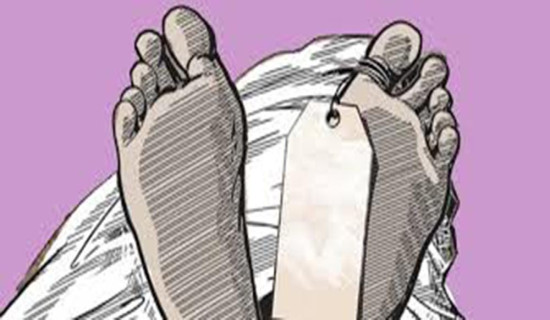- Thursday, 4 December 2025
‘Armageddon Time,’ portrait of white privilege, stirs Cannes
Cannes, May 22: When the Cannes Film Festival audience stood to applaud James Gray’s richly observed autobiographical drama “Armageddon Time,” about the director’s own 1980s childhood in Queens, Gray’s voice quivered as he addressed the crowd.
“It’s my story, in a way,” said Gray. “And you guys shared it with me.”
“It took every last bit of control not to burst out into tears,” Gray said, still recovering the next day in Cannes. “It’s been a really strange journey making the film and my father died two months ago of COVID. The whole process has been fraught and filled with emotion.”
For Gray, “Armageddon Time” is period film about now, and a coming home after two far-flung films in the Amazon-set “The Lost City of Z” and the space adventure “Ad Astra.”
AP: When did “Armageddon Time” start formulating in your head?
GRAY: I was at an art exhibit in Los Angeles five years ago. Painted on the wall it said: “History and myth begin in the microcosm of the personal.” I had made this film before this where I went into space. It was a very difficult movie to make and a very difficult movie to complete. The end result was not fully mine. That was a very sad experience for me. I wanted to try to rediscover my love for the medium and why I wanted it do it in the first place. I said, “Screw it, I’ll make the most personal film I can.”
AP: You’ve called 1980 one of the most pivotal years in American history. Is that because of the election of Reagan?
GRAY: People don’t remember that he campaigned in Philadelphia, Mississippi, which is where Goodman, Schwerner and Cheney were killed by the Klan. And he started talking about states rights. He knew exactly what he was doing. I understand he didn’t come out and say the N-word. He didn’t come out and be Trump completely. But that was his purpose. I feel like that was planting the seeds for a kind of corporatist, me-first, top-down, frankly rooted in racism idea of American capitalism that hasn’t left us fully since. When you propose a system which is all about money, it has the basis of oppression built into it. It didn’t start with slavery. It started with the indigenous people who were basically vaporized. We’re very good at genocide.
AP: These aren’t the normal inward-looking themes of memoir films.
GRAY: All of this is about what the actual economic structure of the country is. I felt that that would have power in a context that’s very small, which is a kid’s transfer from a public school to a private school and how we all do our part to (expletive) things up. In other words, “I’m going to make this ethical compromise now. I’m going to contribute to ethical compromise just a little bit.”
AP: Were you thinking any of this when you were living through it as a kid?
GRAY: When I was a kid I never thought about the levels of capitalism, how if someone is up there, that means somebody’s gotta be down there. I knew 48 kids in a class, something’s wrong. But here’s the thing: Why is it not a source of utter rage in our country that public education in our country is financed by local property taxes? They should be burning down state legislatures because of that. The system makes itself very happy by basically saying: Let’s make a superhero movie but put a trans person in it. That’s fine. That’s excellent, whatever. But that doesn’t solve the problem. You have to look at the system itself and understand that it is based on the brutal oppression of one group to survive.
AP: Your film received an enthusiastic reception here in Cannes. Have you thought about how it will be received stateside?
GRAY: I’m sure there will be people who hate the movie. But as an American, I feel a particular sense of loss that we as filmmakers are not as willing to confront the ideas of class. One of the most amazing things about what Francis Ford Coppola did in that movie is how it presents such a vivid picture of the rot of capitalism. Look at “Jaws.” That mayor will keep the beaches open no matter what. AP
















